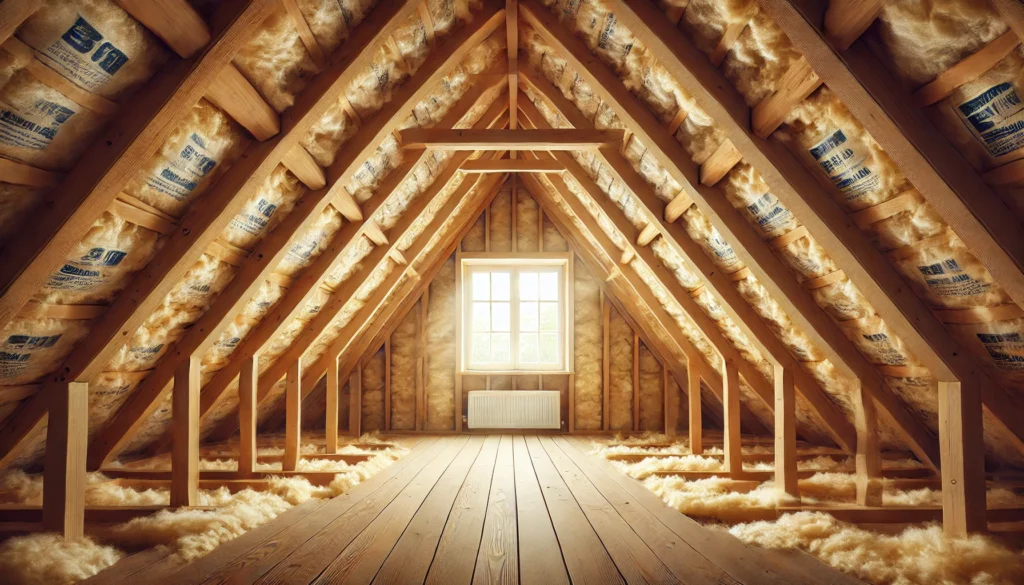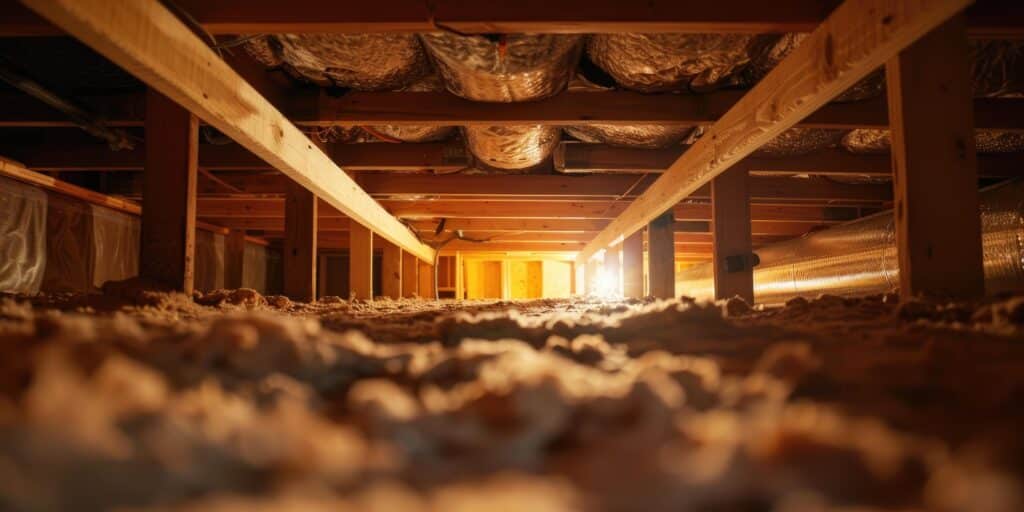If you’re a homeowner, keeping your home safe and healthy for your family is likely at the top of your list. An attic, often out of sight, is a common place where hidden problems can arise, like mold. Understanding the signs of mold in attic spaces can save you money and trouble in the long run.

What is Mold?
Mold is a type of fungus that thrives in damp conditions. It’s known for spreading quickly in environments that offer warmth, moisture, and food sources. Mold can cause health issues and structural damage, which makes identifying and addressing it in your attic crucial.
Why Mold Grows in Attics
Lack of Ventilation
Poor ventilation traps moisture in the attic and creates a breeding ground for mold. When warm air hits cooler attic surfaces, it condenses and leads to moisture buildup.
Roof Leaks
Roof issues such as leaks can introduce water into your attic. The persistent presence of moisture promotes mold growth.
Improper Insulation
Without proper insulation, temperature imbalances can occur, which may lead to condensation. Learn about how insulation affects air quality.
Signs of Mold in Attic
Visible Discoloration
One of the most noticeable signs of mold in attic areas is discoloration on walls or ceilings. Look for streaks of dark brown, black, or green.
Musty Odor
An unpleasant, musty smell might indicate mold, even if it’s not immediately visible. Read more about addressing musty odors effectively.
Health Symptoms
Symptoms like coughing, sneezing, or skin irritation when in your attic might be linked to mold presence. If you notice health symptoms, it’s time to inspect your attic closely.
Water Marks and Stains
Look for signs of previous leaks such as water stains or spots on attic ceilings and walls. Left unchecked, these can lead to mold.
Preventing Mold Growth
Ensure Proper Ventilation
Install roof vents or attic fans to enhance air circulation. Good ventilation reduces moisture and discourages mold growth.
Regular Attic Inspections
Schedule regular inspections to catch potential mold issues early. Regular cleaning and checking can help maintain a mold-free environment.
Maintain Roof Integrity
Fix any roof leaks promptly and ensure it is sealed correctly to prevent water intrusion. This can significantly reduce the risk of mold.
What to Do If You Find Mold
If you spot mold in your attic, it’s crucial to take action promptly. Mold can affect health and damage property. Seeking professional help is often recommended for extensive mold issues.
For detailed guidance, visit this [external source](https://crawlpros.com/the-dos-and-donts-of-cleaning-your-crawl-space) on cleaning practices.
Handling Small Mold Issues
For small, isolated patches, using mold-killing solutions like vinegar can be effective. They’re accessible and can be applied directly to the mold spot.
Conclusion
Being aware of the signs of mold in attic spaces is essential for any homeowner. With proper preventative measures and vigilance, you can control and reduce the risk of mold, ensuring your home remains a healthy and safe environment.

FAQ
What causes mold in an attic?
Mold in the attic is usually due to moisture caused by poor ventilation, leaks, or inadequate insulation.
Can you stay in a house with mold?
While minor mold may be harmless temporarily, prolonged exposure can lead to health issues, so it should be addressed promptly.
How can you prevent attic mold?
Ensure good ventilation, repair leaks, and regularly inspect and maintain your attic to prevent mold.
This article contains affiliate links. We may earn a commission at no extra cost to you.






